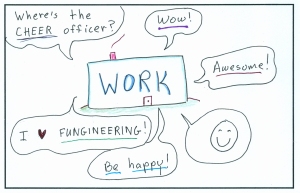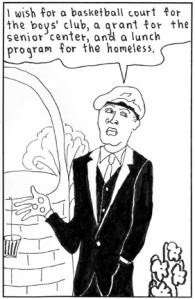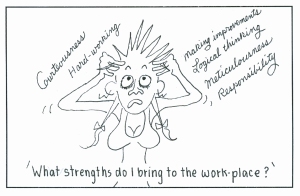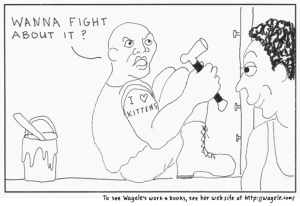This is Part II of a blog based on New York Times’ Op-Ed Contributor Oliver Burkeman’s article, “Who Goes to Work to Have Fun?” 12-11-2013. How Enneagram types fit into fun at work – or not—are my own additions. Burkeman wrote, “Psychologists have shown that positive-thinking affirmations make people with low self-esteem feel worse; that patients with panic disorders can become more anxious when they try to relax; and that an ability to experience negative emotions, rather than struggling to exclude them, is crucial for mental health.”
One reader commented: “Last year, in a conversation with the young adult son of a friend, I asked him if he would like it if his generation just stopped with the ‘awesome!’ for a little while and was able to express real feelings. He looked at me like he wanted to cry and nodded his head yes. As I see that generation with its forced cheerfulness I wonder if they know how inauthentic they’re
being with themselves.” – Lute, Broooklyn
The Burkeman article continues, “And these are just the hazards of trying to enforce happiness on oneself: Matters are surely more fraught when the person doing the enforcing is a manager with possible ulterior motives, such as discouraging too much focus on low wages or inherently unfulfilling work.”
These companies force you to go to happy hours and then use your “friendship” against you when “asking” you for things later on. When I was an employee, I knew very well what made me happy. Doing a good job, producing a quality product, receiving a fair day’s wages for a fair day’s work, going home each night believing I’d done something of value during the day and that both the customers for my efforts and my peers and supervisors recognized the value I added; earning my living and the respect of people whose own work I valued. What did not make me happy included pizza parties, Employee of the Month and similar contests… – ACW New Jersey
The Eneagram types most likely to be managers are the 3-Achiever and the 8-Asserter. Of course, these types may or may not be ethical.
“Instead of striving to make work fun,” Burkeman said, managers should concentrate on creating the conditions in which a variety of personality types, from the excitable to the naturally downbeat, can flourish. That means giving employees as much autonomy as possible, and ensuring that people are treated evenhandedly.” The Enneagram 4-Romantic, a sensitive type, would especially appreciate this. “According to a recent Danish study, lack of fairness at work is a strong predictor of depression, and even heavy workloads don’t bring people down, provided their bosses are fair.
Another comment from a reader: “If a fungineer shows up at the water cooler at my job it will be very difficult to treat them with respect… If corporate thinks they can ramrod happiness down our gullets with trite mantras they ignore at their peril our basic intelligence in favor of another device aimed at boosting quarterly productivity. A poorly dressed Trojan horse indeed; invading our emotional privacy under the guise of caring about employees feelings.” – Morgan S, Atlanta, GA
And: “I suspect a lot of this “Fungineering” movement is aimed at Millennials who are extending adolescence to hitherto unrealized horizons. Work should be engaging, rewarding, fulfilling and pay the rent. If it’s not that, a foosball tournament with microbrews won’t keep employees.” – NYC
Article: “Not that you’d necessarily want an office full of optimists” (3-Achievers, 7-Adventurers, and 9-Peace Seekers), “even if that were achievable. People who are oriented toward ‘defensive pessimism’ play a valuable role, preparing organizations for worst-case scenarios.” These would mainly be 6-Questioners in the Enneagram, who look out for safety.
“And if your business card describes you as Head of Fungineering, or Chief Cheerfulness Ninja, or Vice President of Wow, please skip the next company paintballing weekend, and use the time to ask yourself a few tough questions instead.”
Visit http://wagele.com to check out my books, CD, cartoons, essays, music, and Famous Enneagram Types.
See “The Career Within You – How to Find the Perfect Job for Your Personality” using the Enneagram.
Visit the “Enneagram Made Easy” page on Face Book.










